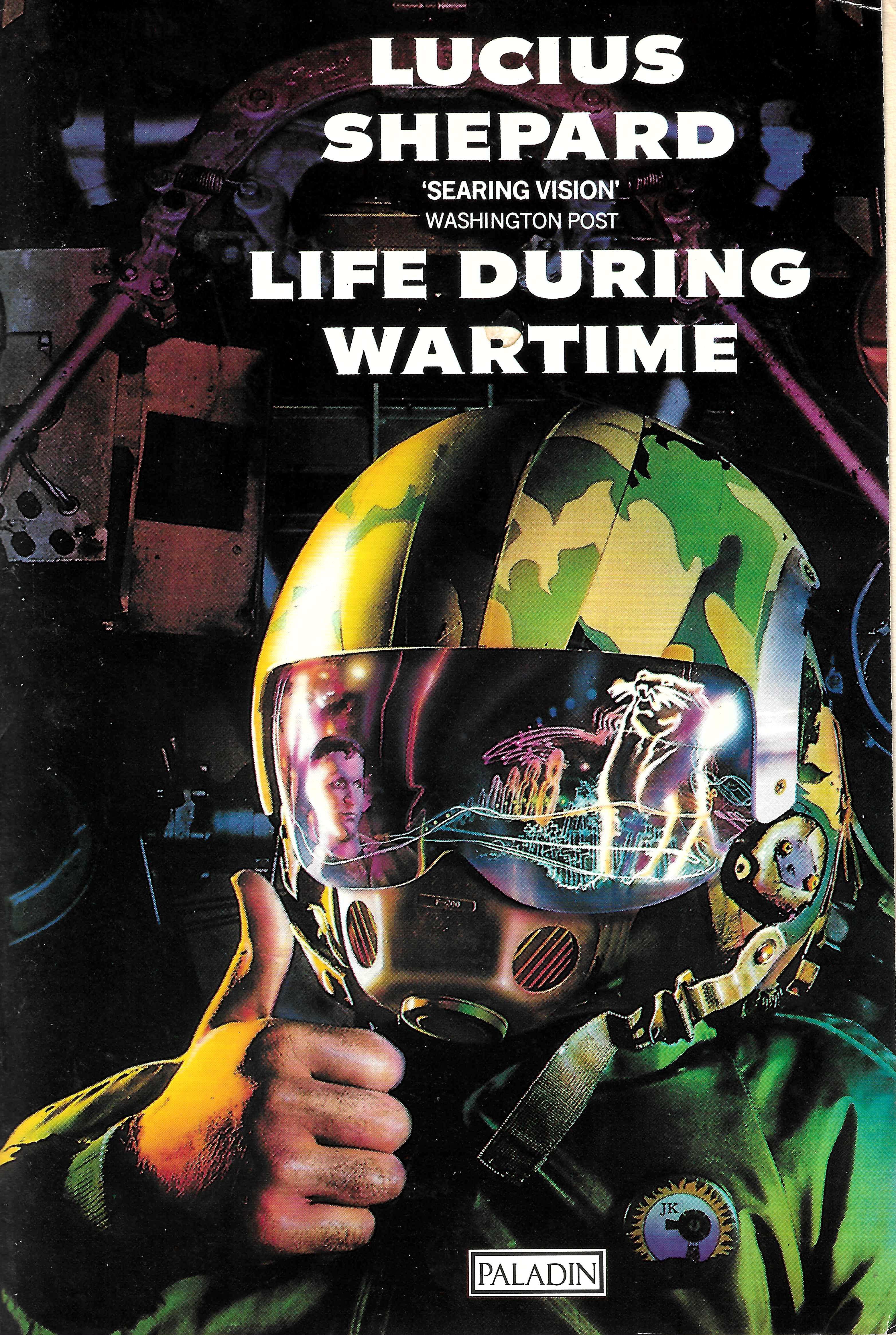In one sense, it is what it appears to be: a list of books she feels are essential reading. On the other hand, the clearly gendered nature of the list (all female-authored books with one by John Scalzi--underscores a few things about these kinds of lists, as well as about the nature of "canon" as a concept.
To begin, the fact that her list is made up almost exclusively of female-authored books signals that female-authorship is one of her selection criteria as a reader. This, in turn, suggests that what we consider canonical is not--and really cannot be--a function of any objective criteria. Rather, it's a product of preferences that are developed over time, what you have been exposed to and what you want to expose other people to.
As it happens, we are frequently presented with lists and listicles that purport to be gender-blind yet are made up of nothing but dudes. One outcome of Renay's list is to confront the reader with a list where female--not male--authorship is taken for granted and its one man, not one women, who is thrown in there as a token. To those who never think about how gender informs selection, the effect may be jarring. It should be jarring, at least.
Fast forward to an internal conversation among us nerds of a feather, when Joe first proposed we think about these issues and come up with lists of our own. I thought: how can I possible come up with a list that adequately captures my own reading interests--and across genres and styles that I don't find to be very comparable? And what do I want to expose readers to, more than anything else?
In my case I don't have a political message to convey *with* my list, but rather have chosen a list of books that either have political messages or which made me think about the world in different terms. Even that was too big, so I decided to further limit myself to books that are either science fiction or transgress the boundaries between science fiction, fantasy, horror and mimetic fiction. It's not an exhaustive list by any means--I probably could have done one with 50 entries or more. But 21 is a snazzy number, isn't it?
Prepare to be mind-bended...
The G's List of Mind-Bending/Expanding Science Fiction and Fantasy Novels
1. Aldiss, Brian. Non-Stop [Faber and Faber, 1958]
Curiosity was discouraged in the Greene tribe. Its members lived out their lives in cramped Quarters, hacking away at the encroaching ponics. As to where they were - that was forgotten. Roy Complain decides to find out. With the renegade priest Marapper, he moves into unmapped territory, where they make a series of discoveries, which turn their universe upside-down... (GoodReads)
The best #GenerationStarship novel I’ve ever read. Thought-provoking, with an ending that still manages to unsettle many years later. Also make rats utterly terrifying. (G)
2. Ballard, J. G. The Atrocity Exhibition [Jonathan Cape, 1970]
Easily one of the 20th century's most visionary writers, J. G. Ballard still lives far ahead of his time. Called his "prophetic masterpiece" by many, The Atrocity Exhibition practically lies outside of any literary tradition. Part science fiction, part eerie historical fiction, part pornography, its characters adhere to no rules of linearity or stability. (GoodReads)
A reality-bending literary experiment that will elicit strong negative reactions from most readers, but will be an exercise in mind-expansion for a lucky few. Possible side effect: may convince you that you are going mad. (G)
3. Banks, Iain M. Use of Weapons [Orbit, 1990]
Cheradenine is an ex-special circumstance agent who had been raised to eminence by a woman named Diziet. Skaffen-Amtiskaw, the drone, had saved her life and it believes Cheradenine to be a burnt-out case. But not even its machine intelligence can see the horrors in his past. (GoodReads)
Two intertwined stories, one of which runs forwards and the other backwards. Easily the most disturbing Culture novel, and the one that most clearly tackles the moral ambiguity of the imperialistic utopia. A deeply disturbing, albeit profound #SpaceOpera. (G)
4. Bester, Alfred. The Stars, My Destination [Signet Books, 1957].
In this pulse-quickening novel, Alfred Bester imagines a future in which people "jaunte" a thousand miles with a single thought, where the rich barricade themselves in labyrinths and protect themselves with radioactive hit men - and where an inarticulate outcast is the most valuable and dangerous man alive. (GoodReads)
A science-fictional take on The Count of Monte Cristo, featuring one of genre’s most memorable antiheroes. The rare “classic” work that doesn’t, for the most part, feel horribly dated. Highly deserving of its reputation. (G)
5. Bolaño, Roberto. The Third Reich [Farrar, Straus & Giroux, 2011]
On vacation with his girlfriend, Ingeborg, the German war games champion Udo Berger returns to a small town on the Costa Brava where he spent the summers of his childhood. Soon they meet another vacationing German couple, Charly and Hanna, who introduce them to a band of locals—the Wolf, the Lamb, and El Quemado—and to the darker side of life in a resort town. Soon he and El Quemado are enmeshed in a round of Third Reich, Udo’s favorite World War II strategy game, and Udo discovers that the game’s consequences may be all too real. (GoodReads)
Dark, ambiguous work of #MagicRealism, about board games, and a great introduction to Bolaño--a supremely talented writer. (G)
6. Brackett, Leigh. The Long Tomorrow [Doubleday, 1955]
Two generations after destruction rained down upon America's cities, the population is scattered into small towns. Cities are forbidden by law, as is scientific research. Rumors abound of a secret place known as "Bartorstown", where science is untrammelled by interference or hatred. A youth named Len Colter, developing an unhealthy thirst for knowledge exacerbated by the discovery of a forbidden radio, sets out on a long road. During this journey, he will change his mind many times before determining the correct direction for himself, and the benighted America in which he lives. (GoodReads)
Pioneering work of #PostApocalyptic fiction. Significantly better than some of its better-known contemporaries. (G)
7. Brunner, John. Stand on Zanzibar [Doubleday, 1968]
Written in a way that echoes John Dos Passos' U.S.A. Trilogy, "Stand on Zanzibar "is a cross-section of a world overpopulated by the billions. Where society is squeezed into hive-living madness by god-like mega computers, mass-marketed psychedelic drugs, and mundane uses of genetic engineering. Though written in 1968, it speaks of 2010, and is frighteningly prescient and intensely powerful. (GoodReads)
Visionary work of #NearFuture science fiction. Anticipates the zeitgeist (if not the particulars) of the post-millennial world. (G)
8. Butler, Octavia. Parable of the Sower [Four Walls Eight Windows, 1993]
When unattended environmental and economic crises lead to social chaos, not even gated communities are safe. In a night of fire and death Lauren Olamina, a minister's young daughter, loses her family and home and ventures out into the unprotected American landscape. But what begins as a flight for survival soon leads to something much more: a startling vision of human destiny... and the birth of a new faith. (GoodReads)
#PostApocalyptic novel that, following Earth Abides, is really about how to pick up the pieces. Features strong characters and Butler's eloquent prose, making it significantly better than Earth Abides. Also makes dogs utterly terrifying. (G)
9. Cadigan, Pat. Fools [Spectra, 1992]
When Marva, a Method actress, awakens in a hologram pool, carrying in her head the memory of a murder, she must think fast to find out whose life she is living and to elude the Escort Service assassins who are pursuing her. (GoodReads)
A #PostCyberpunk crime novel about Method acting--need anything else be said? The rare science fiction novel that explores the sociological effects of technological advancement in a non-superficial way. (G)
10. Delaney, Samuel L. Dhalgren [Bantam, 1974]
Bellona is a city at the dead center of the United States. Something has happened there…. The population has fled. Madmen and criminals wander the streets. Strange portents appear in the cloud-covered sky. And into this disaster zone comes a young man–poet, lover, and adventurer–known only as the Kid. Tackling questions of race, gender, and sexuality, Dhalgren is a literary marvel and groundbreaking work of American magical realism. (GoodReads)
6. Brackett, Leigh. The Long Tomorrow [Doubleday, 1955]
Two generations after destruction rained down upon America's cities, the population is scattered into small towns. Cities are forbidden by law, as is scientific research. Rumors abound of a secret place known as "Bartorstown", where science is untrammelled by interference or hatred. A youth named Len Colter, developing an unhealthy thirst for knowledge exacerbated by the discovery of a forbidden radio, sets out on a long road. During this journey, he will change his mind many times before determining the correct direction for himself, and the benighted America in which he lives. (GoodReads)
Pioneering work of #PostApocalyptic fiction. Significantly better than some of its better-known contemporaries. (G)
7. Brunner, John. Stand on Zanzibar [Doubleday, 1968]
Written in a way that echoes John Dos Passos' U.S.A. Trilogy, "Stand on Zanzibar "is a cross-section of a world overpopulated by the billions. Where society is squeezed into hive-living madness by god-like mega computers, mass-marketed psychedelic drugs, and mundane uses of genetic engineering. Though written in 1968, it speaks of 2010, and is frighteningly prescient and intensely powerful. (GoodReads)
Visionary work of #NearFuture science fiction. Anticipates the zeitgeist (if not the particulars) of the post-millennial world. (G)
8. Butler, Octavia. Parable of the Sower [Four Walls Eight Windows, 1993]
When unattended environmental and economic crises lead to social chaos, not even gated communities are safe. In a night of fire and death Lauren Olamina, a minister's young daughter, loses her family and home and ventures out into the unprotected American landscape. But what begins as a flight for survival soon leads to something much more: a startling vision of human destiny... and the birth of a new faith. (GoodReads)
#PostApocalyptic novel that, following Earth Abides, is really about how to pick up the pieces. Features strong characters and Butler's eloquent prose, making it significantly better than Earth Abides. Also makes dogs utterly terrifying. (G)
9. Cadigan, Pat. Fools [Spectra, 1992]
When Marva, a Method actress, awakens in a hologram pool, carrying in her head the memory of a murder, she must think fast to find out whose life she is living and to elude the Escort Service assassins who are pursuing her. (GoodReads)
A #PostCyberpunk crime novel about Method acting--need anything else be said? The rare science fiction novel that explores the sociological effects of technological advancement in a non-superficial way. (G)
10. Delaney, Samuel L. Dhalgren [Bantam, 1974]
Bellona is a city at the dead center of the United States. Something has happened there…. The population has fled. Madmen and criminals wander the streets. Strange portents appear in the cloud-covered sky. And into this disaster zone comes a young man–poet, lover, and adventurer–known only as the Kid. Tackling questions of race, gender, and sexuality, Dhalgren is a literary marvel and groundbreaking work of American magical realism. (GoodReads)
Challenging experimental novel centered on an extremely unreliable narrator; requires multiple readings to appreciate the literary pyrotechnics. (G)
11. Dick, Philip K. A Scanner Darkly [Doubleday, 1977]
Substance D is not known as Death for nothing. It is the most toxic drug ever to find its way on to the streets of LA. It destroys the links between the brain's two hemispheres, causing, first, disorientation and then complete and irreversible brain damage. The undercover narcotics agent who calls himself Bob Arctor is desperate to discover the ultimate source of supply. But to find any kind of lead he has to pose as a user and, inevitably, without realising what is happening, Arctor is soon as addicted as the junkies he works among... (GoodReads)
Thinly fictionalized, #NearFuture SF that reflects Dick’s own struggles with substance abuse. Gritty, real and moving. (G)
12. Disch, Thomas M. The Genocides [Berkley Books, 1965]
In this harrowing novel, the world's cities have been reduced to cinder and ash and alien plants have overtaken the earth. The plants, able to grow the size of maples in only a month and eventually reach six hundred feet, have commandeered the world's soil and are sucking even the Great Lakes dry. In northern Minnesota, Anderson, an aging farmer armed with a Bible in one hand and a gun in the other, desperately leads the reduced citizenry of a small town in a daily struggle for meager existence. Throw into this fray Jeremiah Orville, a marauding outsider bent on a bizarre and private revenge, and the fight to live becomes a daunting task. (GoodReads)
Chilling #AlienInvasion story that imagines human beings as pests in a gardening venture. (G)
13. Gibson, William. Neuromancer [Ace, 1984]
Case had been the sharpest data-thief in the business, until vengeful former employers crippled his nervous system. But now a new and very mysterious employer recruits him for a last-chance run. The target: an unthinkably powerful artificial intelligence orbiting Earth in service of the sinister Tessier-Ashpool business clan. With a dead man riding shotgun and Molly, mirror-eyed street-samurai, to watch his back, Case embarks on an adventure that ups the ante on an entire genre of fiction. (GoodReads)
The prototypical #cyberpunk novel that spawned a million clichés. Holds up surprisingly well given for a forty-year old piece of #NearFuture science fiction—a testament to Gibson’s vision and superior writing. (G)
14. LeGuin, Ursula K. The Dispossessed [Harper & Row, 1974]
Shevek, a brilliant physicist, decides to take action. He will seek answers, question the unquestionable, and attempt to tear down the walls of hatred that have isolated his planet of anarchists from the rest of the civilized universe. To do this dangerous task will mean giving up his family and possibly his life--Shevek must make the unprecedented journey to the utopian mother planet, Urras, to challenge the complex structures of life and living, and ignite the fires of change. (GoodReads)
Anarcho-syndicalist #Utopian novel that's deliciously ambivalent on the notion of utopia. Somewhat dated but still highly readable. (G)
15. Mandel, Emily St. John. Station Eleven [Knopf, 2014]
An audacious, darkly glittering novel set in the eerie days of civilization's collapse, Station Eleven tells the spellbinding story of a Hollywood star, his would-be savior, and a nomadic group of actors roaming the scattered outposts of the Great Lakes region, risking everything for art and humanity. (GoodReads)
Most literary of literary #PostApocalyptic novels, which takes place before, during and after the apocalyptic event. A spiritual sequel to The Road, only better. (G)
16. Mitchell, David. Cloud Atlas [Random House, 2004]
Cloud Atlas begins in 1850 with Adam Ewing, an American notary voyaging from the Chatham Isles to his home in California. Abruptly, the action jumps to Belgium in 1931, where Robert Frobisher, a disinherited bisexual composer, contrives his way into the household of an infirm maestro....From there we jump to the West Coast in the 1970s and a troubled reporter named Luisa Rey, who stumbles upon a web of corporate greed and murder that threatens to claim her life. And onward, with dazzling virtuosity, to an inglorious present-day England; to a Korean superstate of the near future where neocapitalism has run amok; and, finally, to a postapocalyptic Iron Age Hawaii in the last days of history. (GoodReads)
17. Russo, Richard Paul. Ship of Fools [Ace, 2001]
Home to generations of humans, the starship Argonos has wandered aimlessly throughout the galaxy for hundreds of years, desperately searching for other signs of life. Now an unidentified transmission lures them toward a nearby planet-and into the dark heart of an alien mystery. (GoodReads)
21. Wolfe, Gene. Shadow and Claw [Simon & Schuster 1980/81]
The Shadow of the Torturer is the tale of young Severian, an apprentice in the Guild of Torturers on the world called Urth, exiled for committing the ultimate sin of his profession -- showing mercy toward his victim. The Claw of the Conciliator continues the saga of Severian, banished from his home, as he undertakes a mythic quest to discover the awesome power of an ancient relic, and learn the truth about his hidden destiny. (GoodReads)
11. Dick, Philip K. A Scanner Darkly [Doubleday, 1977]
Substance D is not known as Death for nothing. It is the most toxic drug ever to find its way on to the streets of LA. It destroys the links between the brain's two hemispheres, causing, first, disorientation and then complete and irreversible brain damage. The undercover narcotics agent who calls himself Bob Arctor is desperate to discover the ultimate source of supply. But to find any kind of lead he has to pose as a user and, inevitably, without realising what is happening, Arctor is soon as addicted as the junkies he works among... (GoodReads)
Thinly fictionalized, #NearFuture SF that reflects Dick’s own struggles with substance abuse. Gritty, real and moving. (G)
12. Disch, Thomas M. The Genocides [Berkley Books, 1965]
In this harrowing novel, the world's cities have been reduced to cinder and ash and alien plants have overtaken the earth. The plants, able to grow the size of maples in only a month and eventually reach six hundred feet, have commandeered the world's soil and are sucking even the Great Lakes dry. In northern Minnesota, Anderson, an aging farmer armed with a Bible in one hand and a gun in the other, desperately leads the reduced citizenry of a small town in a daily struggle for meager existence. Throw into this fray Jeremiah Orville, a marauding outsider bent on a bizarre and private revenge, and the fight to live becomes a daunting task. (GoodReads)
Chilling #AlienInvasion story that imagines human beings as pests in a gardening venture. (G)
13. Gibson, William. Neuromancer [Ace, 1984]
Case had been the sharpest data-thief in the business, until vengeful former employers crippled his nervous system. But now a new and very mysterious employer recruits him for a last-chance run. The target: an unthinkably powerful artificial intelligence orbiting Earth in service of the sinister Tessier-Ashpool business clan. With a dead man riding shotgun and Molly, mirror-eyed street-samurai, to watch his back, Case embarks on an adventure that ups the ante on an entire genre of fiction. (GoodReads)
The prototypical #cyberpunk novel that spawned a million clichés. Holds up surprisingly well given for a forty-year old piece of #NearFuture science fiction—a testament to Gibson’s vision and superior writing. (G)
14. LeGuin, Ursula K. The Dispossessed [Harper & Row, 1974]
Shevek, a brilliant physicist, decides to take action. He will seek answers, question the unquestionable, and attempt to tear down the walls of hatred that have isolated his planet of anarchists from the rest of the civilized universe. To do this dangerous task will mean giving up his family and possibly his life--Shevek must make the unprecedented journey to the utopian mother planet, Urras, to challenge the complex structures of life and living, and ignite the fires of change. (GoodReads)
Anarcho-syndicalist #Utopian novel that's deliciously ambivalent on the notion of utopia. Somewhat dated but still highly readable. (G)
15. Mandel, Emily St. John. Station Eleven [Knopf, 2014]
An audacious, darkly glittering novel set in the eerie days of civilization's collapse, Station Eleven tells the spellbinding story of a Hollywood star, his would-be savior, and a nomadic group of actors roaming the scattered outposts of the Great Lakes region, risking everything for art and humanity. (GoodReads)
Most literary of literary #PostApocalyptic novels, which takes place before, during and after the apocalyptic event. A spiritual sequel to The Road, only better. (G)
16. Mitchell, David. Cloud Atlas [Random House, 2004]
Cloud Atlas begins in 1850 with Adam Ewing, an American notary voyaging from the Chatham Isles to his home in California. Abruptly, the action jumps to Belgium in 1931, where Robert Frobisher, a disinherited bisexual composer, contrives his way into the household of an infirm maestro....From there we jump to the West Coast in the 1970s and a troubled reporter named Luisa Rey, who stumbles upon a web of corporate greed and murder that threatens to claim her life. And onward, with dazzling virtuosity, to an inglorious present-day England; to a Korean superstate of the near future where neocapitalism has run amok; and, finally, to a postapocalyptic Iron Age Hawaii in the last days of history. (GoodReads)
Foz Meadows once called Cloud Atlas a "masterclass in voice," which it is. Its six constituent parts could all stand on their own, yet are instead perfectly assembled into the meta-novel, which is nothing short of remarkable. (G)
17. Russo, Richard Paul. Ship of Fools [Ace, 2001]
Home to generations of humans, the starship Argonos has wandered aimlessly throughout the galaxy for hundreds of years, desperately searching for other signs of life. Now an unidentified transmission lures them toward a nearby planet-and into the dark heart of an alien mystery. (GoodReads)
Meditative, haunting #GenerationStarship novel that garnered some acclaim on publication but has since receded into obscurity--a shame. Allegorical treatment of Catholicism, a subject I find interesting (G)
18. Shepard, Lucius. Life During Wartime [Bantam, 1987]
David Mingolla soon learns that escape from the rotten jungles of Guatemala is impossible – he is once more a pawn of secret, ruthless forces lusting for world domination. They try to dominate David by ordering him to kill the woman he loves. (GoodReads)
Uneven and at times problematic work of #FutureWar (see: white man in jungle trope). Sheer quantity of graphic violence and explicit sex will also be a barrier for some readers. However, in its best moments, Life During Wartime captures the pointless, psychedelic horror of war. Grimdark with a purpose (G)
19. Strugatsky, Arkady and Boris. Roadside Picnic [Macmillan, 1972]
Red Schuhart is a stalker, one of those young rebels who are compelled, in spite of extreme danger, to venture illegally into the Zone to collect the mysterious artifacts that the alien visitors left scattered around. His life is dominated by the place and the thriving black market in the alien products. But when he and his friend Kirill go into the Zone together to pick up a “full empty,” something goes wrong. And the news he gets from his girlfriend upon his return makes it inevitable that he’ll keep going back to the Zone, again and again, until he finds the answer to all his problems. (GoodReads)
Like The Genocides, and #AlienInvasion novel where humans don't really factor in to the calculus of the visitors--one way or the other. Fascinating, challenging and full of mysteries to be unlocked on re-read. (G)
20. Tidbeck, Karin. Jagganath [Cheeky Frawg Books, 2011]
Enter the strange and wonderful world of Swedish sensation Karin Tidbeck with this feast of darkly fantastical stories. Whether through the falsified historical record of the uniquely weird Swedish creature known as the “Pyret” or the title story, “Jagannath,” about a biological ark in the far future, Tidbeck’s unique imagination will enthrall, amuse, and unsettle you. (GoodReads)
18. Shepard, Lucius. Life During Wartime [Bantam, 1987]
David Mingolla soon learns that escape from the rotten jungles of Guatemala is impossible – he is once more a pawn of secret, ruthless forces lusting for world domination. They try to dominate David by ordering him to kill the woman he loves. (GoodReads)
Uneven and at times problematic work of #FutureWar (see: white man in jungle trope). Sheer quantity of graphic violence and explicit sex will also be a barrier for some readers. However, in its best moments, Life During Wartime captures the pointless, psychedelic horror of war. Grimdark with a purpose (G)
19. Strugatsky, Arkady and Boris. Roadside Picnic [Macmillan, 1972]
Red Schuhart is a stalker, one of those young rebels who are compelled, in spite of extreme danger, to venture illegally into the Zone to collect the mysterious artifacts that the alien visitors left scattered around. His life is dominated by the place and the thriving black market in the alien products. But when he and his friend Kirill go into the Zone together to pick up a “full empty,” something goes wrong. And the news he gets from his girlfriend upon his return makes it inevitable that he’ll keep going back to the Zone, again and again, until he finds the answer to all his problems. (GoodReads)
Like The Genocides, and #AlienInvasion novel where humans don't really factor in to the calculus of the visitors--one way or the other. Fascinating, challenging and full of mysteries to be unlocked on re-read. (G)
20. Tidbeck, Karin. Jagganath [Cheeky Frawg Books, 2011]
Enter the strange and wonderful world of Swedish sensation Karin Tidbeck with this feast of darkly fantastical stories. Whether through the falsified historical record of the uniquely weird Swedish creature known as the “Pyret” or the title story, “Jagannath,” about a biological ark in the far future, Tidbeck’s unique imagination will enthrall, amuse, and unsettle you. (GoodReads)
Remarkable collection of weird fiction, some of which I've read in the original Swedish. Strongly rooted in folklore and myth, and almost
militantly economical. Highly recommended. (G)
21. Wolfe, Gene. Shadow and Claw [Simon & Schuster 1980/81]
The Shadow of the Torturer is the tale of young Severian, an apprentice in the Guild of Torturers on the world called Urth, exiled for committing the ultimate sin of his profession -- showing mercy toward his victim. The Claw of the Conciliator continues the saga of Severian, banished from his home, as he undertakes a mythic quest to discover the awesome power of an ancient relic, and learn the truth about his hidden destiny. (GoodReads)
Often hailed as a great work of epic fantasy, though it is actually an example of #DyingEarth science fiction. A literary puzzle box; begs to be re-read. (G)
***
POSTED BY: The G--purveyor of nerdliness, genre fanatic and Nerds of a Feather founder/administrator, since 2012.
***
POSTED BY: The G--purveyor of nerdliness, genre fanatic and Nerds of a Feather founder/administrator, since 2012.
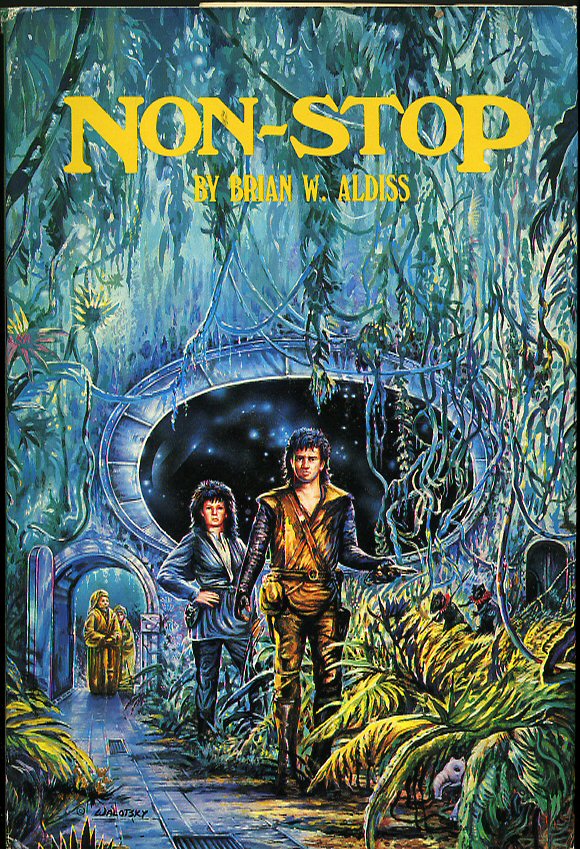

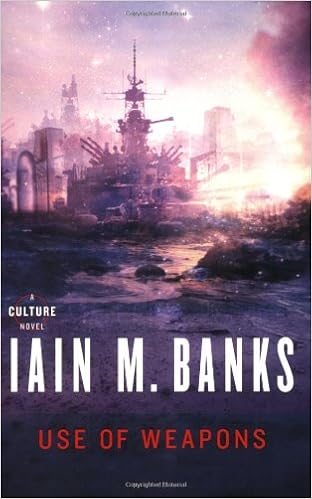
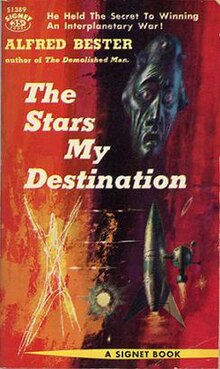

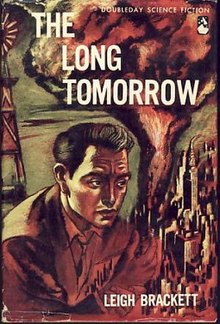
.jpg/220px-StandOnZanzibar(1stEd).jpg)

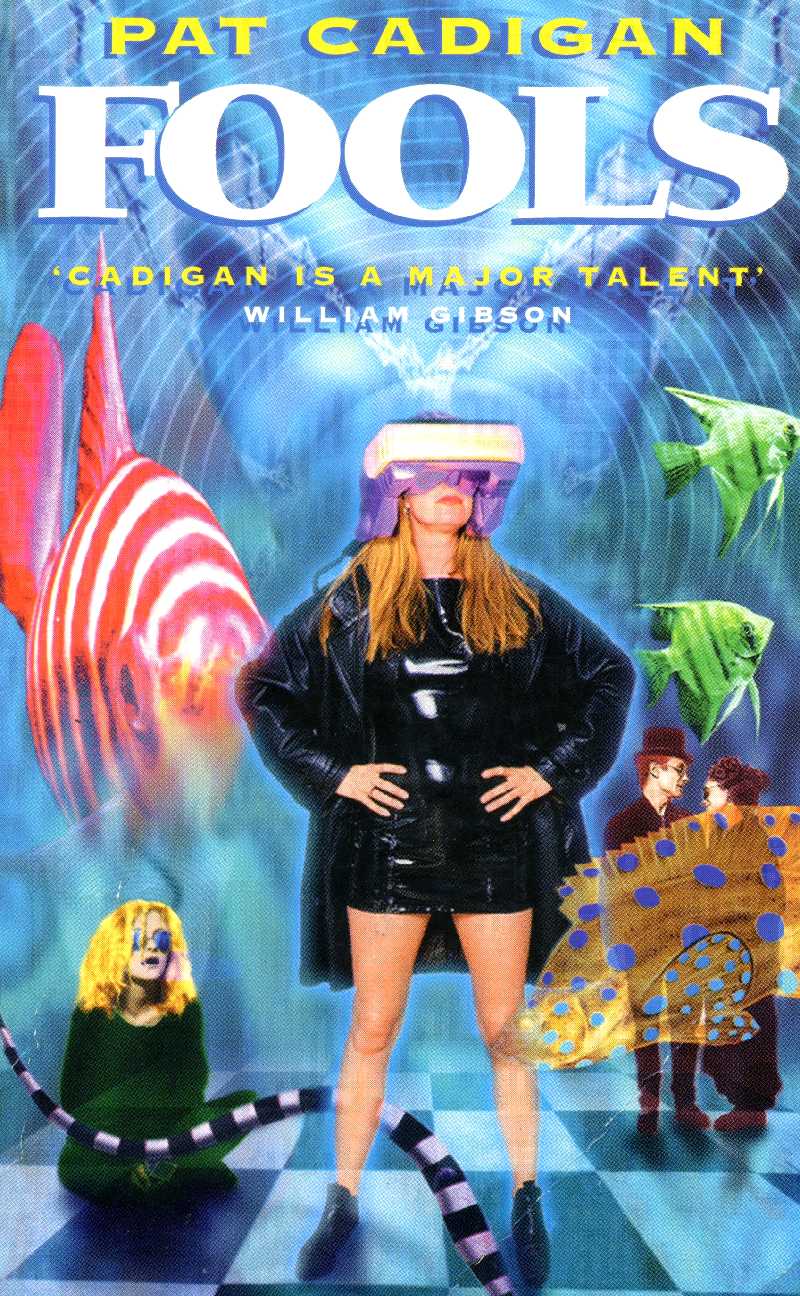

.jpg)
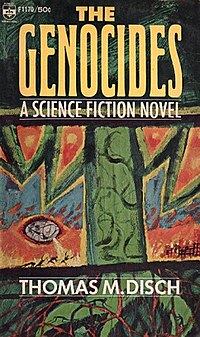
.jpg)
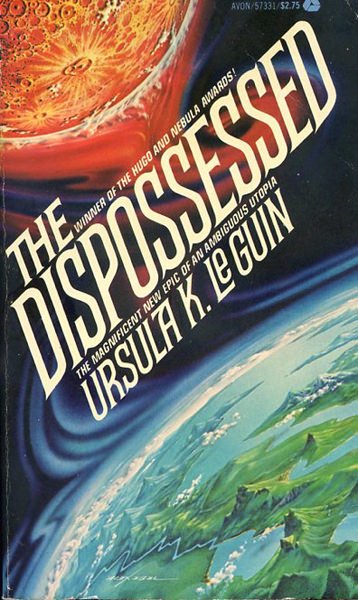
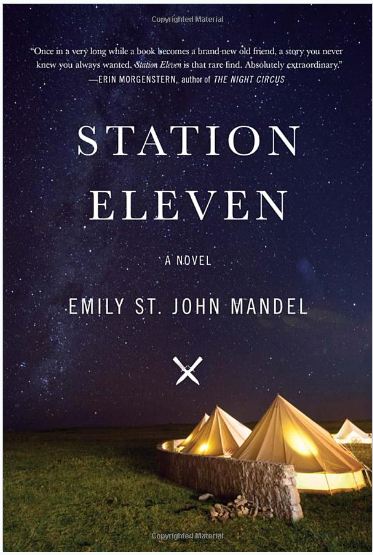

.jpg)
